MOVIE PREVIEW – Before he had even finished making Get Out, his Oscar®-winning 2017 blockbuster that delved deep into issues of race and privilege in America, writer/director/producer Peele was already developing the idea for a new film that promised to be even more terrifying, and just as psychologically incisive, as the one he was making at the time. “The idea for this movie came from a deep-seated fear in doppelgängers,” Peele says. “I love doppelgänger mythologies and the movies that have dealt with them, and I wanted to make my offering to that pantheon of ‘evil-double’ films. I was drawn to this idea that we are our own worst enemy. That’s something we all know intrinsically, but it’s a truth we tend to bury. We blame the outsider, we blame ‘the other.’ In this movie, the monster has our faces.”
Doppelgängers, or mysterious doubles of living people, are almost as old as storytelling itself. They appear in almost all folklore and mythology, reportedly reaching as far back as ancient Egypt in the form of “ka,” a physical manifestation of a spiritual double that shares the memories, experiences and feelings of its living counterpart. These early narrative archetypes were the progenitors of so-called “evil twin” characters that have appeared in literature throughout history. With few exceptions, it’s seldom a good sign when doppelgängers pop up in a story. “Doppelgängers have always been a source of fear,” Peele says. “It’s connected to your sense of mortality, I think. You can’t both exist, so one of you has to go. Throughout mythology, doppelgängers often represent bad omens or are a foreshadowing of one’s death. I wanted to pinpoint, and then develop the story, from that primal fear.”
That quest to pinpoint our root fears, and what they might represent, led Peele to some provocative places that not only plumbed the depths of the human psyche, but also America’s national identity. “I tend to draw inspiration from my own fear,” Peele says. “At some point I ask myself, ‘What’s the scariest thing for me, personally?’ In this case it was the idea of seeing myself. And then I think about what that’s really about, about why seeing yourself is so scary. No one really wants to look at their faults, their guilt, their demons. We all want to look elsewhere.” That inclination to project our own fears, anxieties and anger outward is also an endemic part of American culture. “This country, and how this country looks at the world, we have a fear of the outsider,” Peele says. “It’s built into the fear of everything from terrorism to immigration. One of the great core horror films that carried a powerful social message is George A. Romero’s Night of the Living Dead. That movie was about race even though they don’t really talk about race in the film. I wanted to follow that approach with this movie.”
While Get Out confronted unspoken truths about race in America, Us takes on America, and the American dream, itself. “This film is operating on multiple levels,” says producer Ian Cooper, who has known Peele since they were both teenagers. “On the surface, it’s a terrifying thriller, and you can watch it that way and enjoy it, but beneath that, it’s about how the things we think we’ve gotten away with come back to haunt us. And beneath that, it’s about how, in American culture, we often claim that ‘the other,’ some group outside of ourselves, is the problem. With this script, Jordan has given us an ‘other’ that is a terrifying force to be reckoned with, and it is ourselves.”
The film centers on an American family, the Wilsons, who come under attack by doppelgängers of themselves, referred to in the film as The Tethered. And while Us is not overtly about race, it does subvert historical tropes of the horror genre and its typical depiction of black people. “The film is about an American family trying to live the perfect American dream, and then realizing that the American dream is perilous, insecure and unsustainable,” says Winston Duke, who plays Gabe Wilson. “I look at the American dream as another character in this film that succumbs to the dangers of the horror-thriller genre and becomes a hapless victim. Whereas audiences typically experience black characters as the first casualties of the plot, Jordan take a revolutionary position, making the American dream the central victim of the film instead of the people of color.”
That, Cooper says, is one of the many things in the film that will defy audience expectations. “What’s remarkable is that Us centers on an African-American family in 2019, but their race has nothing explicitly to do with the plot of the film,” Cooper says. “Obviously, that’s a huge change from Get Out, but this story is really about humanity and about being an American. The genius of Jordan’s writing is that when audiences see the Wilsons, a black family, and the Tylers, a white family, in the film trailer they are conditioned to imagine what might be occurring in this story, but that’s not what’s actually occurring. The Wilson family is not unlike Richard Dreyfuss’ family in Close Encounters of the Third Kind. They’re just an American family with problems and loveable aspects to their dynamics, but they aren’t relegated to having to be ambassadors for their skin color.”
Peele anchors the story around Adelaide Wilson (Nyong’o) who, as a child in 1986, wanders off from her parents (YAHYA ABDUL-MATEEN II, ANNA DIOP) during a family outing to the Santa Cruz Boardwalk and finds herself in a dark funhouse hall of mirrors called Vision Quest. While alone, young Adelaide (MADISON CURRY) discovers, to her horror (and ours) that what seems at first to be her reflection is in fact a hostile doppelgänger of herself. She escapes, but she has no words to explain what she has seen, and no one, certainly, would understand or believe her if she did. Over the years, Adelaide tries to bury the memory, but when, as an adult, she returns to Santa Cruz with her own family, it becomes clear that her past will not let her go.
“I love making films that are terrifying but also fun,” Peele says. “Adelaide is a woman who has a trauma in her past that she has been dealing with throughout her life. She now has kids, a husband and sort of the perfect American family, but that trauma is still lingering in her subconscious. When she comes back with her family to the house she grew up in, she’s returning to the location of her original trauma. She starts to sense that something is wrong. That nightmare she had so many years ago is coming back, and it’s coming back for her family.”
Peele’s script inspired and intrigued his filmmaking team, and the ideas behind it proved to be even more expansive than those in his first film. “I heard an early version of this story from Jordan while we were working together on Get Out,” says producer Sean McKittrick. “To me, it is even more ambitious and intellectual than Get Out was. It’s mind-blowing, thought-provoking and a lot more terrifying, in the traditional horror sense. I often describe it as an R-rated Amblin film. It’s about a family facing a dark version of themselves and having to fight for their own survival. The themes are more about what we’ve become as a country and involve a kind of karmic retribution for how we’re treating each other. So it’s more esoteric, and a deeper dive intellectually, than the obviousness of racism that we explored in Get Out.”
Us also provided Peele and his team with a broader cinematic canvas than they’d had for Get Out, which was set primarily in one location. “The idea was to pivot a bit from Get Out, ratcheting up the scale and widening the aperture of the narrative,” Cooper says. “Get Out was an intimate experience for the audience. It was focused on the character of Chris and his experience in that house. Whereas with Us, Jordan had this idea to take the intimate notion of a doubling of self and widen it out to a family. It’s about recognizing how something that is problematic in oneself could radiate out to your partner, your children, your friends and possibly, beyond that.”
What’s most remarkable, however, is that the film manages to be intellectually invigorating while still being a thrilling, terrifying cinematic experience. “It’s like a popcorn art film,” Cooper says. “It is esoteric. It’s complicated. But it feels as urgent and experiential as any great thriller. The beauty of this film is that Jordan affords the audience a real potential for introspection without it feeling like you’re doing homework. The magic of his filmmaking is that he basically gets to make an art film, but it lands as a blockbuster.”
In many ways, Peele is crafting a new genre all his own. “There’s no reason that movies that gross a certain amount of money have to be only superhero films,” Cooper says. “There’s an expansive potential to Jordan’s style of filmmaking, which both subtly unravels the fabric of our culture, while revelling in it. He’s able to do that in a uniquely satisfying way wherein audiences feel like they’ve been on a rollercoaster. My hope with Us is that people leave the theater, just like they did with Get Out, wide-eyed, nervously laughing, incredulous, scared and thinking about what it all might mean—and most importantly, what it might mean about themselves.”
Producer Jason Blum, who has built a filmmaking empire by knowing exactly how to scare the hell out of people, says Us confirms that Peele is a creative force to be reckoned with. “What struck me about the script for Us was the same thing that stood out for me when I read Get Out, which was how incredible and powerful and original the writing was,” Blum says. “The script was deeply, deeply unsettling and unlike anything I’d ever read before. There was no movie to compare it to. It was just extraordinarily original. First and foremost, Us is an incredibly entertaining scary movie, but it’s also really about something. It’s provocative and unsettling, and it’s tackling this idea that our own worst enemy is ourselves. It’s like nothing anyone’s ever seen before. It’s incredibly suspenseful and it makes you feel very, very uneasy.”
That may be an understatement. “This is not going to be the feel-good movie of the year,” says Tim Heidecker, who plays Josh Tyler. “This is a film that is going to sit with you for a long time and probably make you think about who we are as a country and what kind of people we are.”
What’s certain is that audiences won’t be prepared for what’s about to hit them. Us is a film packed with dramatic twists and shocking turns. Whatever expectations audiences may have when they enter the theater will be upended by the time the credits roll. “This is a movie that keeps revealing itself to the audience,” Cooper says. “We keep peeling back these layers, so the audience never really knows what’s coming, even if they think they do.”
That, Peele says, was exactly his intent. “I’m curious to see what the audience sees in the film,” Peele says. “There are specific ideas that I’m exploring and trying to say with this film, all relating to our duality as human beings, and the guilt and the sins that we bury deep within ourselves. I’m most excited to see how audiences will react to the end of this film. It gets pretty crazy at the end.”
To say the least. “The ending of the film will probably cause some…discomfort,” Cooper says, laughing. “Jordan loves making films that you feel compelled to immediately see again, and I think that will definitely be the case with Us.” At least one member of the cast had to take their word for it. “I didn’t read the ending,” Heidecker says. “I wanted to see the movie in the theater like everybody else will. Everyone is going to want to see it because you are going to want to talk about it with everybody else. You don’t want to be the dope who’s left out of that conversation.”
Finding Humor Amid Horror
Most traditional horror films are heavy on gore and short on laughs, but Peele, who initially built his career in comedy, sees an organic connection between the two genres. “Horror and comedy are both great ways of exposing how we feel about things,” Peele says. “That’s what a catharsis is to me, when you have an emotional reaction watching a film and then you’re left to ask yourself, ‘What was that about? Why did I react that way? Why did I laugh? Why did I scream? Why did I cheer?’ One of the reasons I love genre films is because they push these visceral, involuntary reactions that can ultimately teach you something about yourself, if you want to look.”
Woven into the frightening fabric of Us is an organic humor that rises out of the natural dynamics of family and friendship and from the absurdities of our always-plugged-in modern lives. That, Peele says, is a key ingredient for an ideal audience experience. “The comedy that emerges from a tense moment or scene in a horror film is necessary for cleaning the emotional palate, to release the tension,” Peele says. “It gives your audience an opportunity to emotionally catch up and get prepared for the next run of terror. With horror, you don’t need to go much further than the truth to get a laugh. I don’t like to tell jokes, or to write something with the purpose of being funny. I like to write something that feels true to a character and true to the reality of the situation. That way, the audience never gets taken out of the moment, or out of the genre.”
That mix of humor and horror is an essential part of Peele’s filmmaking magic.
“Jordan has created this unique brand of filmmaking that no one has done since something like The Twilight Zone,” says Elisabeth Moss, who plays Kitty Tyler. “It’s incredibly entertaining, and brutally scary, but with this little twist of humor. It makes you see things you didn’t see before, or makes you see them in a different way.”
Both the horror and comedy genres have the ability to challenge how we think and how we see the world in ways that traditional drama cannot. For that reason, they are ideal formats for socially conscious storytelling. “Great horror is often grounded in reality, which is the way I love to do comedy as well,” Peele says. “It allows something crazy to be going on, but it’s married, as best as possible, with reality. I don’t see myself moving far from horror any time soon.”
That’s music to producer Blum’s ears. “One of the most exciting things for me is that Jordan wanted to follow Get Out with a genre movie,” Blum says. “A lot of directors who have a success with a scary movie as their first film want to do something else for their second, so I was excited that Jordan wanted to stay in this genre, but with a much bigger canvas.”
Indeed, horror is a genre with seemingly endless potential, and Peele has packed Us with hidden references to some of his favorites. “Early on, I asked Jordan which films were influencing this story or had inspired his imagination,” says Nyong’o, who plays Adelaide Wilson. “He created a list for me of films to go through that ranged from Dead Again to A Tale of Two Sisters, The Shining, Alien, The Birds. That was very informative, not just for how he was framing this world, but also for specific moments in those films that he pays homage to in Us.”
Peele also cites Roman Polanski’s Rosemary’s Baby, A Nightmare on Elm Street and the Japanese film Suicide Club as some of his favorites, but it’s Ridley Scott’s Alien that holds a special place in his heart. “Alien was the most ingeniously designed film I’d ever seen,” Peele says. “Not only does it still hold up today, but the ground that it broke in creating an elegant, singular monster, a new type of environment, was just…it’s just movie magic.” Now, he has created an elegant, singular monster of his own.
-theGeek- (to be continued)

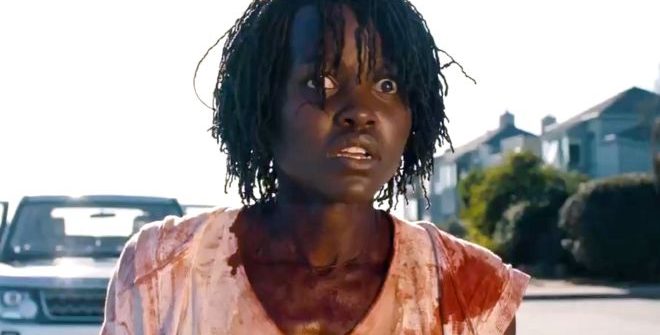

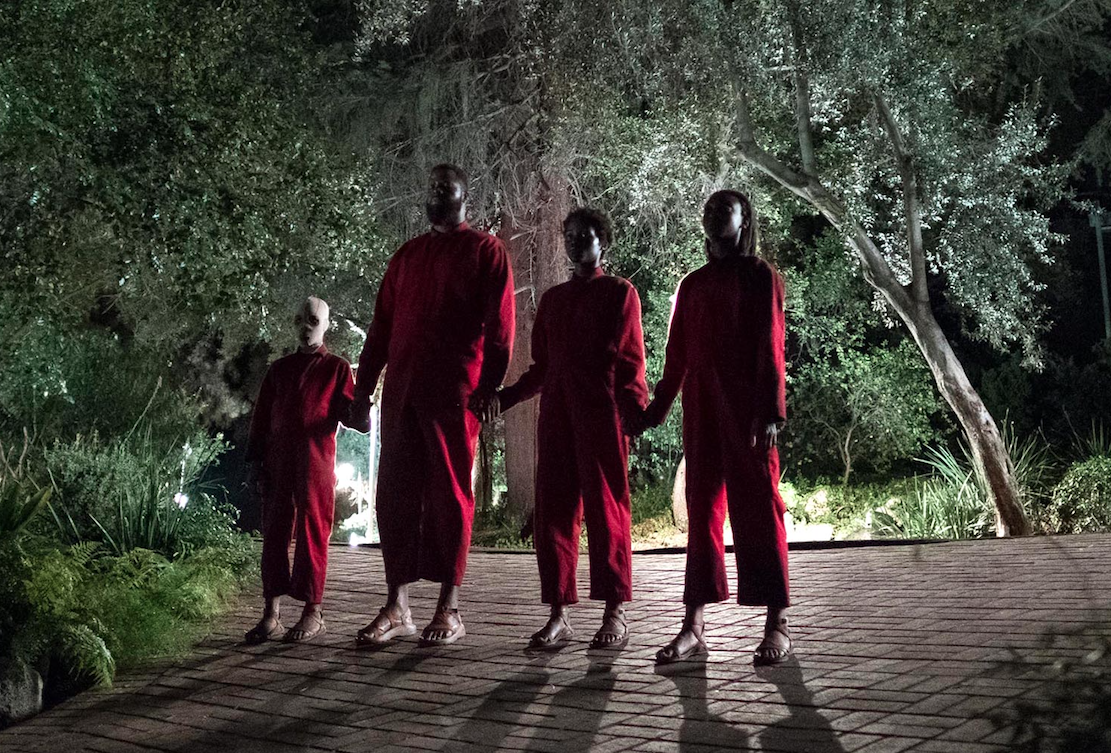


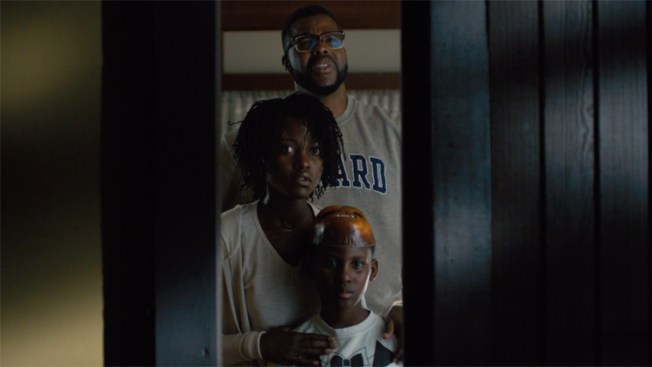
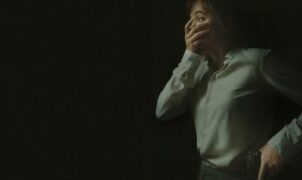
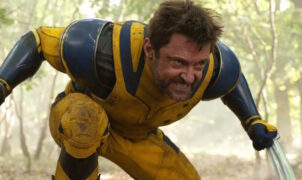
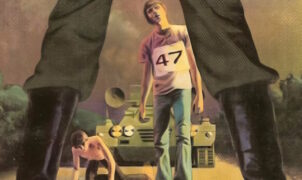



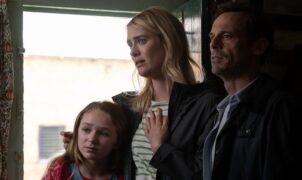
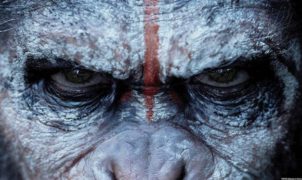
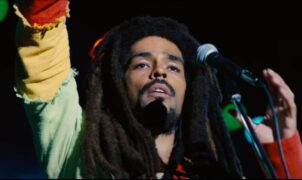
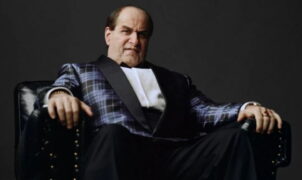




Leave a Reply